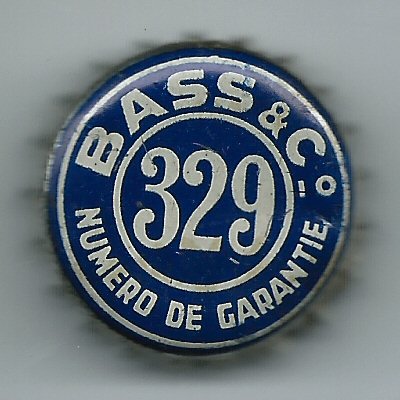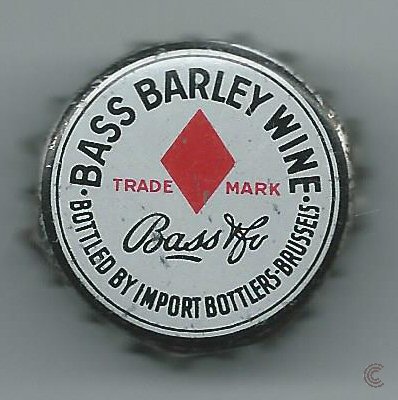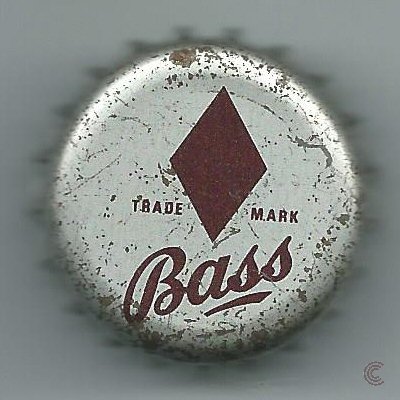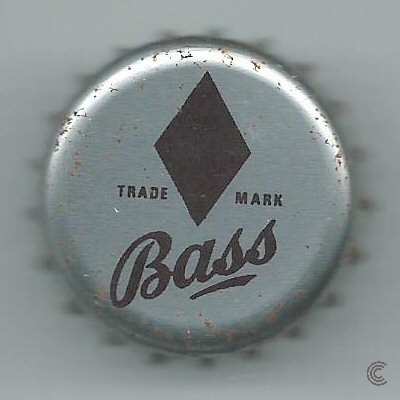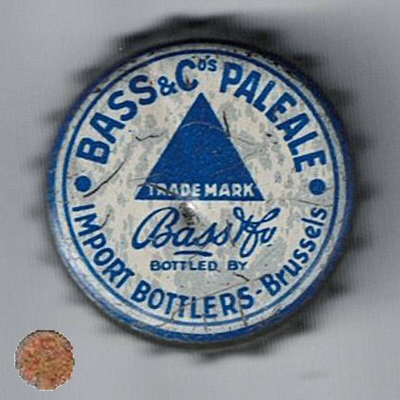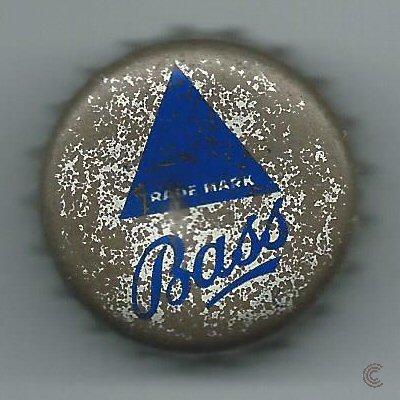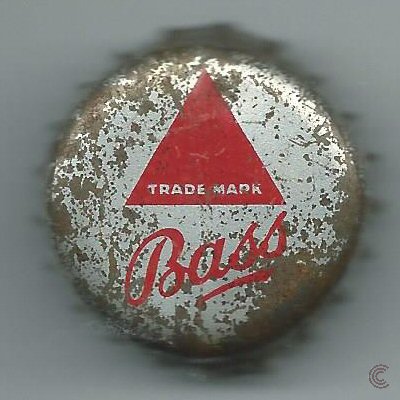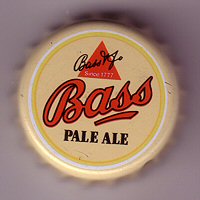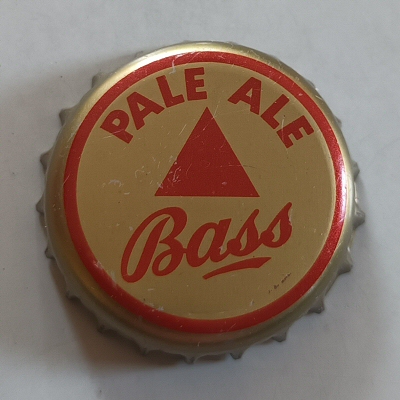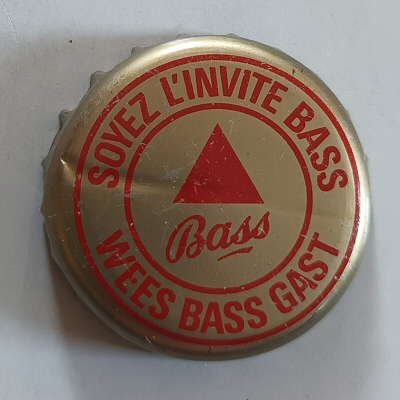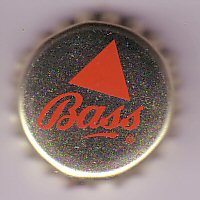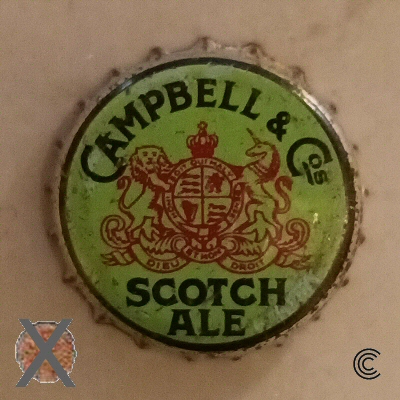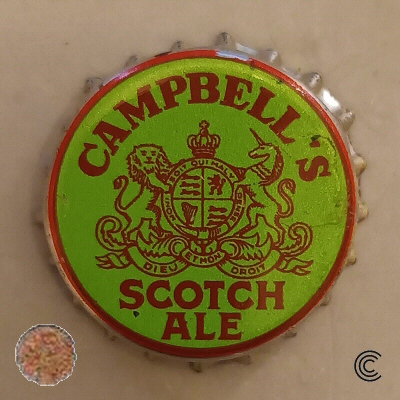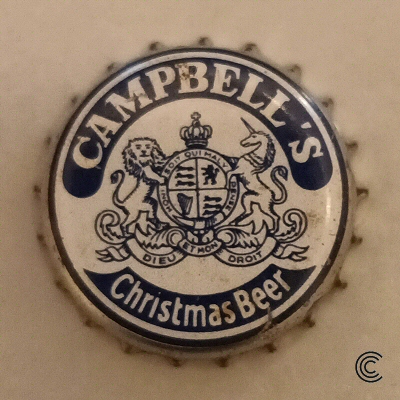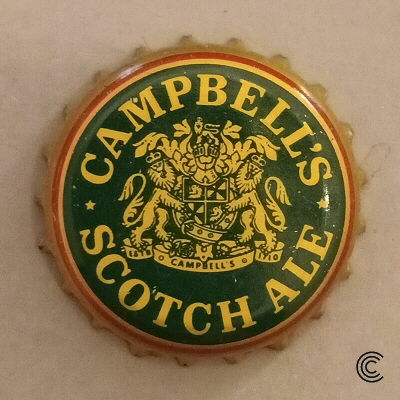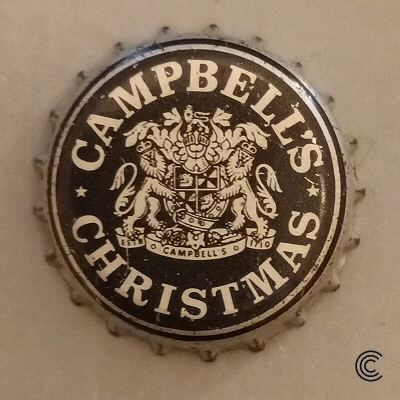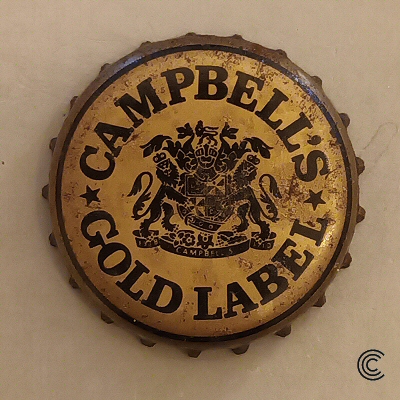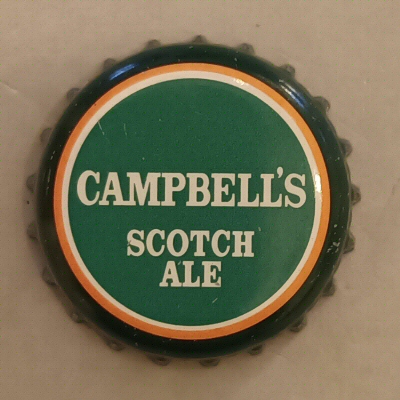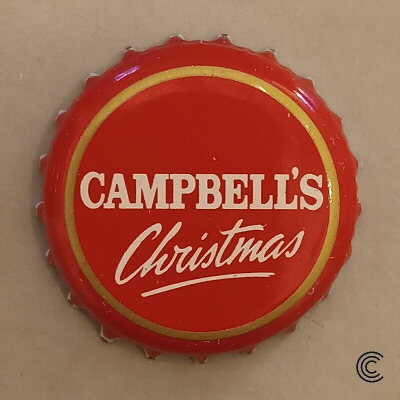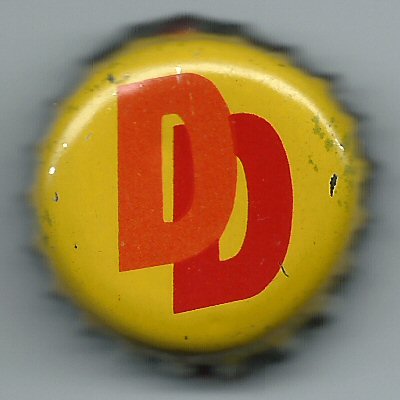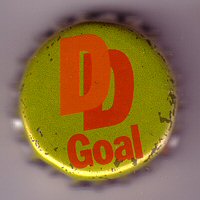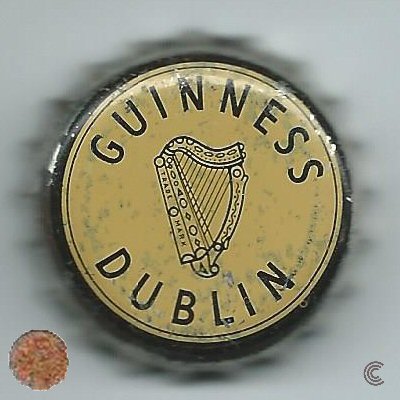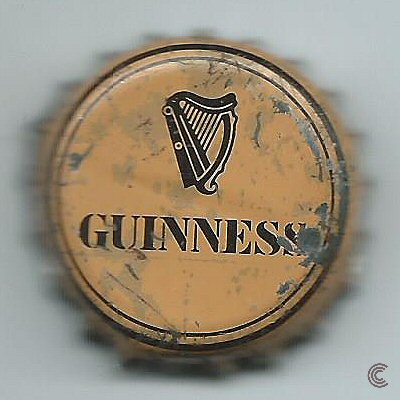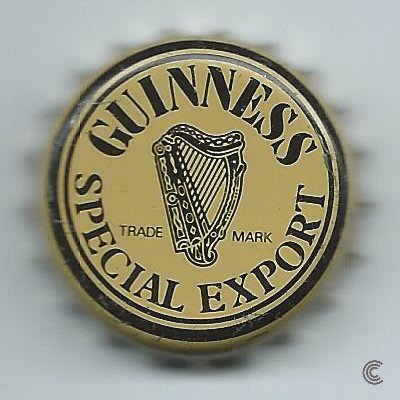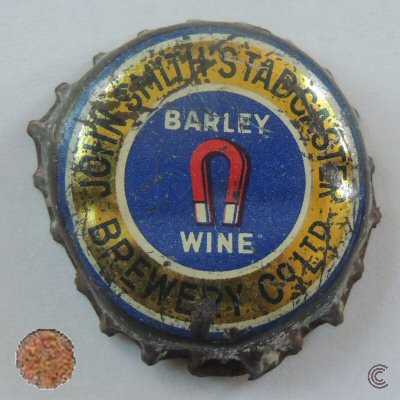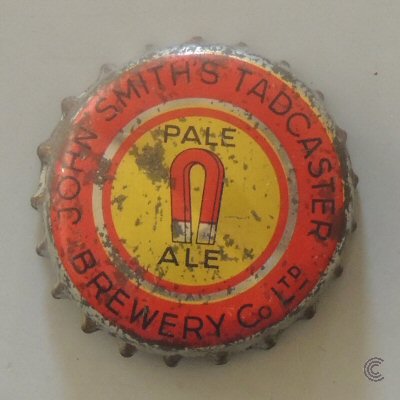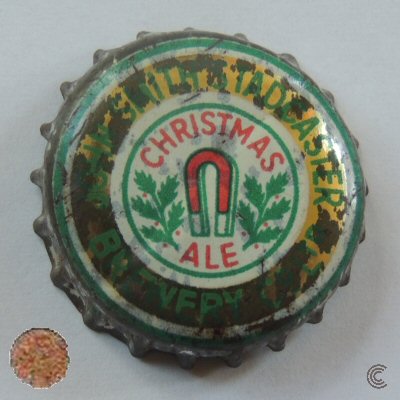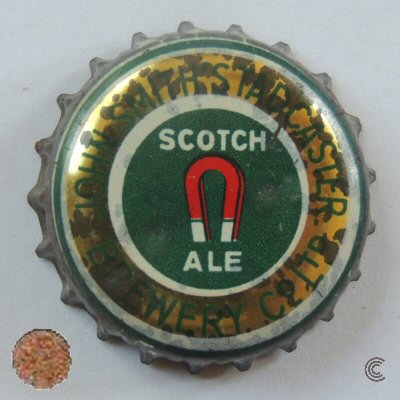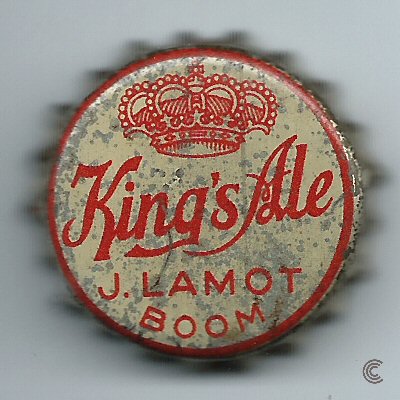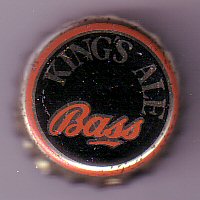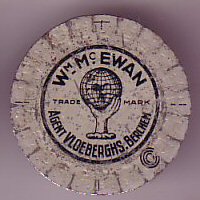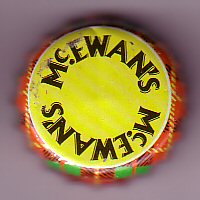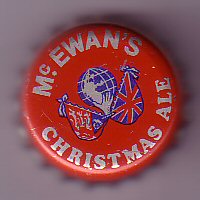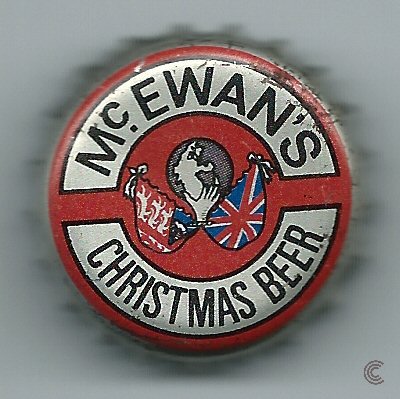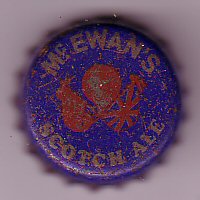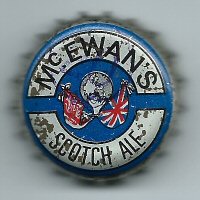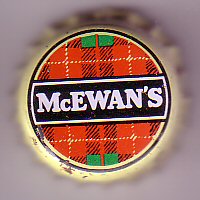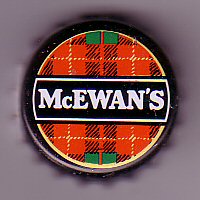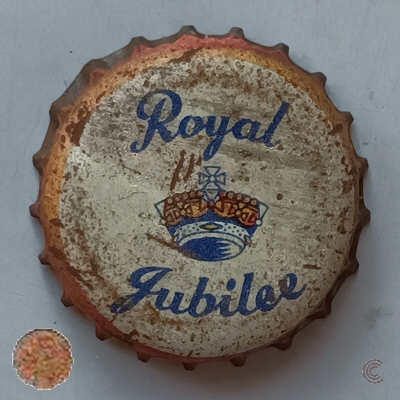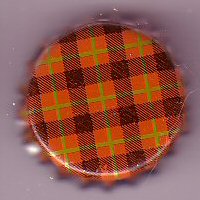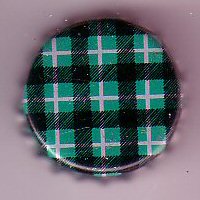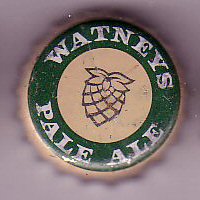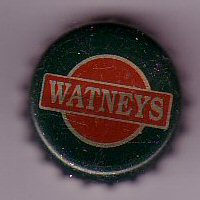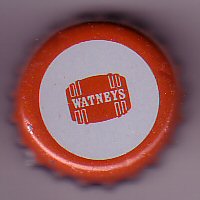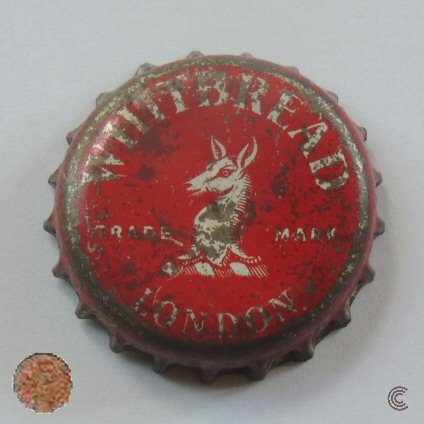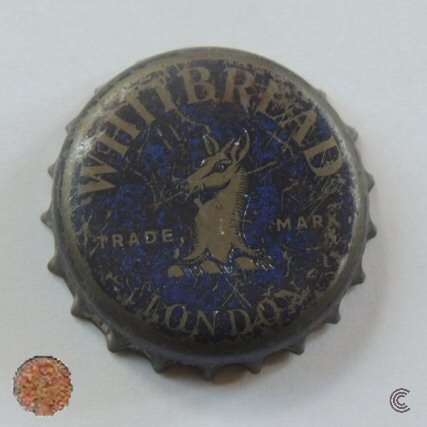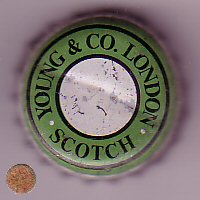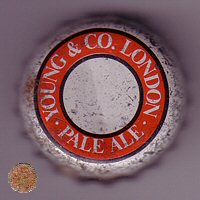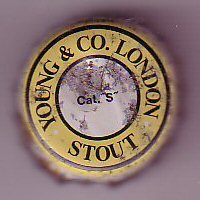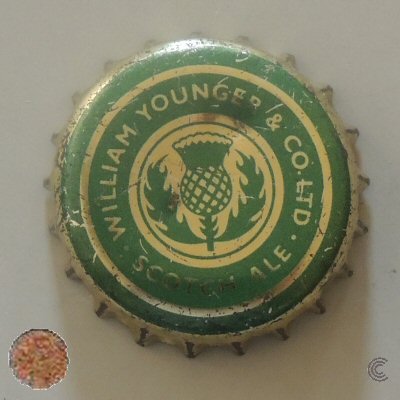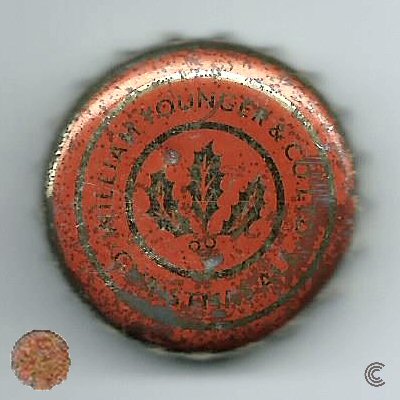British beers
Are they Belgian ?
At the level of the various collectors, there is a consensus to consider certain English beers as Belgian beers. I can actually
find four reasons for this:
- Some beers were (and still are) brewed or bottled by a Belgian brewery.
- The English brewer had established a branch (or depot) in Belgium to sell his beer.
- The beers were available on the Belgian market through import companies.
- They were bottled by the Crown Cork Company in Antwerp.
Based on information found on the Internet, caps or brewery bills, I have listed following different English beers. If you ever have other contradictory or
complementary information, please do not hesitate: contact me .
I hope that Irish guys will forgive me someday,
but i have included the Guiness in this English beer review!
Bass
Bass beers are brewed by the English company Bass Charrington, which has been producing Bass Pale Ale since 1777.
The Cogégan company imported Bass Pale Ale and Bass Stout in 1956.
Around the same time, Bass beers were imported by the Import Bottlers company in Brussels. It is acquired by Bass Charrington which makes it its bottling center in Belgium.
In 1970, the heirs of the last owner of the Lamot brewery in Mechelen sold their shares to Bass Charrington. Different types of Bass will therefore be
produced in Mechelen: Bass Pale Ale, Bass Stout.
In 2010, Interbrew bought Bass Charrington and Bass Pale Ale is now produced in Belgium under license. Its alcohol content is higher than that of the English beer.
Campbell
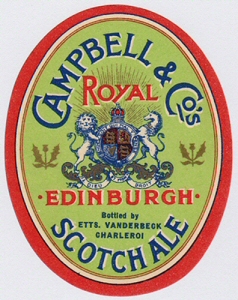
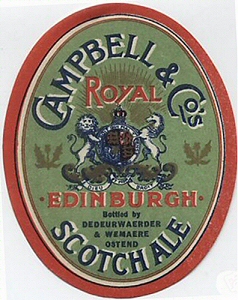 The Campbell Scotch Ale was imported in Belgium by Wouters in 1949 et Cogégan in 1956 as well as
the Etablissements Vanderbeck in Charleroi and De Deurwaerder & Wemaere in Ostende.
The Campbell Scotch Ale was imported in Belgium by Wouters in 1949 et Cogégan in 1956 as well as
the Etablissements Vanderbeck in Charleroi and De Deurwaerder & Wemaere in Ostende.
Campbell beers (Scotch Ale, Christmas and Gold Label) have been present on the Belgian market since 1970. At that time, they were imported by the Belgian division.
of the British Whitbread Brewery, which had absorbed the Campbell, Hope & King brewery in Edinburgh, the original owners of the brand.
A few years later, the beer was brewed in Belgium, first at the Dendria brewery in Onkerzele, which was owned
by Whitbread since 1963. Dendria closed in 1977 but in 1976 the production of the Campbell was transferred to the Martinas brewery, where Whitbread
took a 50% stake in the same year. Whithbread ceased its activities in Belgium in 1989 but the production of the Campbell was taken over under license by the
Interbrew group which had taken over the Martinas brewery.
In 1991, Interbrew closed the Martinas brewery and production was transferred to the Artois factory in Louvain. In 2000, Interbrew bought the British company Whitbread,
and therefore acquired the Campbell brand. Interbrew, now AB-InBev, currently produces Campbell's Scotch at the Belle-Vue brewery plant in Sint-Pieters-Leeuw,
near Brussels.
Those beers are produced in Belgium under the name Campbell's, as opposed to Campbell & Co used in England.
Dendria or Martinas?
The capsules with Dieu et mon droit, the motto of the English monarchy, are with cork and can therefore be attributed to Dendria.
Those with 1578 Campell's 1710 are therefore from Martinas.
Double Diamond
Double Diamond was originally an IPA brewed from 1896 and taken over by the Ind. Coope in 1935. In the 1950s, she was one of the
most drunk beers in the UK; Prince Philip was a big fan of it.
The Double Diamond was imported into Belgium by the La Marine brewery in Brussels. The latter received it by
tank and bottled it herself. The brewery closed in 1979.
Guinness
Stout beer produced by the Irish brewer St. James, established in Dublin in 1759. In 1912, John Martin receives the exclusivity of the distribution of the Guinness for Belgium. In 1944, he even managed to convince the Irish brewery to develop a version of Guinness especially for Belgium, the Special Export (GXS). This beer is now called Guinness Antwerpen.
John Smith's
Beers from John Smith's Tadcaster Brewery & Co Ltd in Tadcaster were imported by the Tilkens company in
Brussels, namely Pale Ale, Scotch Ale and Barley Wine.
From 1973, the Roman brewery in Mater imported and marketed Pale Ale, Scotch Ale and Stout (1). It is no more
mentioned in its 2021 product list.
King's Ale
King's Ale was a Strong Ale created in 1902 by the Bass Brewery in Burton-on-Trend and which began production in 1911 for the King's coronation Georges V. This beer was produced in Belgium by the Joseph Lamot brewery in Boom. The latter is taken over in 1954 by the Lamot brewery in Mechelen which continues to produce this beer (until 1985?).
Mc Ewans
Beer produced by a Scottish brewer established in 1856 in Edimbourgh. It was sold in Belgium by the brewery Lamot .
In 1981, the Piedboeuf brewery acquired Lamot and took over the McEwan's brand, but sales did not manage to take off.
The brand is taken over by the John Martin brewery in Genval which still sold it in 2009, it is no longer mentioned in its 2021 product list.
Royal Jubilee
The Royal Jubilee Stout was a beer brewed by the Hope & Anchor Breweries in Sheffield from 1953 to celebrate the jubilee of the coronation of the Queen Elizabeth II. The company Tilkens in Brussels imported this beer.
Watney
In 1964, the Watney Mann group bought the Delbruyère brewery from Châtelet to the Union brewery and transformed its
name in Watney's SA.
It produced the entire range of Watneys beers: Christmas, Pale Ale, Red Barrel, Scotch, Speciale and Stout.
In 1969, Watney Mann took control of the brewery Maes which in 1978 took control of the Union brewery in Jumet. The Watneys brewery in Châtelet ceased its activities in 1978 and the production of Watneys beers was transferred to Jumet.
In 1986, the Maes family took back control of the Maes brewery, the production of Christmas and Stout was stopped. In 2007, closure of the Union brewery which produced Watneys Scotch Pale Ale, Red and Speciale; production switches to Alken. Currently, there is only Watneys Scotch Ale which is still produced by the AB-Inbev group. (Red Barrel sold in 2017).
Whitbread
Whitbread was the only English brewery to have its own bottling depots in Belgium (4 in 1914 including Brussels and Antwerp). The beer was originally transported by steamboat to Brussels but, subsequently, the company developed its transport by tanker truck. In order to cope with the strong growth of the Belgian demand, Whitbread bought in 1963 the Dendria brewery in Onkerzele, only to be used for bottling (until 1967).
In 1970, faced with the high cost of transporting beer from England to Belgium, the Onkerzele brewery was reopened to brew Whitbread Stout and Campbell's Scotch directly. In 1976, Whitbread acquired control of the Martinas brewery in Merchtem and transferred there all of its production. In 1984, Pale Ale represented around 30% of the British Ale market
In 1989, Whitbread ceased all its activities in Belgium but signed an agreement with Interbrew which undertook to sell its products in six countries including Belgium. In 1990, the last depot, in Brussels, is closed.
Young's
Beers from the Young's range (Pale Ale, Sout and Scotch, plus Christmas in winter) are sold by the Gistel brewery. After its takeover by Piedboeuf, they continue to be sold under license, but Piedboeuf turned away in favor of the Bass which it acquired at the same time as the Lamot brewery in 1981. At that time, the Bass had a market share of around 50%.
William Younger
Beers produced by the William Younger Company in Edinburgh since 1749, the latter merged in 1931 with Mc Ewans but each brewery continued to produce and sell its own beers. Simon in Brussels was an importer of Bass and W. Younger beers






